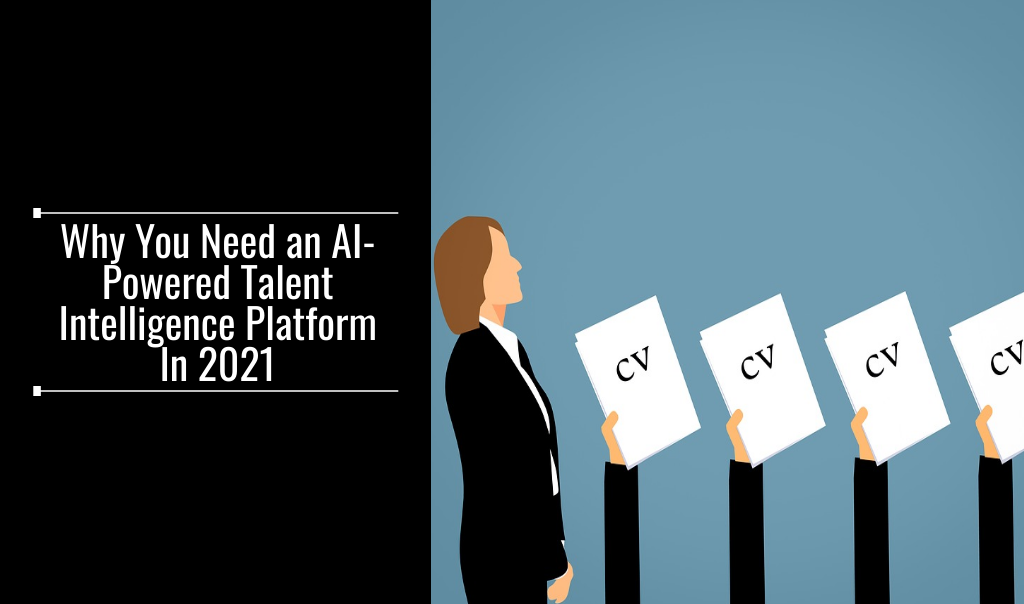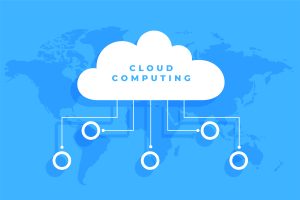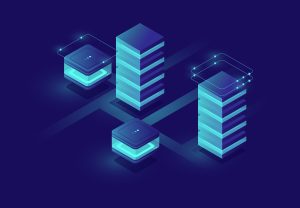Finding the right talent for a company can be very difficult. HR departments face many challenges in hiring and retaining employees. Such include demand for higher compensation that is commensurate with the skill level.
Some job groups face an acute talent shortage. It makes the pickings slim for companies that do not have financial might. On the part of HR, there could be bias in the hiring process. Suitable candidates may end up missing job opportunities.
AI-powered intelligence platforms can transform all this. But first, let’s start the discussion by understanding what it is.
AI-Powered Talent Intelligence Platforms: What Are They?
Artificial intelligence is already present in almost all sectors. You find its use and transportation, education, health, and even the beauty industry. And now, HR departments can benefit by using it to determine the best human capital.
AI recruiting helps with all HR functions. Such tasks are hiring, onboarding, and management processes. It also helps with the automation of manual tasks that usually take a very long time to complete.
The Talent intelligence tools help with the analysis and centralization of data. From the data, they help automate different things. Such are pattern recognition, insights, and reporting for better decision-making.
The company can also identify gaps in the talent pool. AI also helps with onboarding and screening processes. They can then take appropriate steps to fill in such. But there are so many other benefits, which we will highlight below.
- The Use of Potential to Check Candidates
Organizations are realizing the importance of streamlining recruiting and evaluation processes with AI. It helps match capability and potential with the right skill. Talent intelligence platforms analyze data resulting in the removal of bias when hiring.
Deep learning, natural language processing, and machine learning help with resume screening. Recruiters can rank the potential candidates, making it easy to choose the best.
AI-powered talent platforms can adapt to different situations. They continue to learn from the interactions with humans and the environment. Best of all, they work without human help. The insights from data help with better decision-making in recruiting and maintaining talent.
Data provides managers with an objective approach to understanding the different demographics. It helps with policies and more efficient ways for shortlisting candidates. The result is better upskilling, career paths, inclusion, equity, and objectivity.
- Dealing with Human Bias
We have already talked about bias above. But, it is an area that requires a more in-depth discussion. Every individual, no matter how hard you try, has a level of bias. Different types of unconscious bias find their way into recruitment. The Infographics below summarize it well.

Source: Agency Central
Bias may result in subjective decision-making in critical areas. Let’s take the example of the ranking of universities or tertiary institutions. A company may reject a candidate from a less known educational institution. Yet, the candidate with the skills they’re looking for may come from there.
AI talent platforms do not have such bias. They ignore race, gender, or ethnicity. They may not even focus on the tertiary institution the individual went to.
What you get is equal opportunity and better diversity. It also provides insights into critical areas. Such include the number of minorities or females in the organization. With analytics, a company can identify different parameters that may need adjusting.
- Career Site Personalization
AI-powered talent platforms help personalize career sites. Candidates are more likely to find jobs that are suitable for their skill level. It helps improve engagement and results in lower drop-off rates.
Companies also use the technologies to improve candidate experience on their sites. Take the example of the use of AI chatbots. Such Innovations can handle queries and give timely feedback.
The use of artificial intelligence in onboarding provides more personalized experiences. A recruiter has access to information. They can go through it without needing someone to hold their hand through the entire process.
Some companies are recording tutorials from experienced team members who may be leaving. The companies use such material for training purposes. AI can help match knowledge requirements with the available material.
It saves HR time, which they can spend on other core tasks. Candidates also get access to information that is relevant to them and their new roles.
Let’s use the example of someone who is looking for a job. Most sites depend on skills to determine the best job match. But, they do not go further to show where else you could find opportunities. Such could exist in different jobs or challenges.
Artificial intelligence looks at different facets of an applicant. It uses information from millions of profiles to create a better match based on your resume. Recruits can get to know who they will be working with.
Candidates also get access to skill-specific content in the form of blogs or videos. An individual gets better insights into the best jobs depending on the skills they have.
- Time and Money-Saving
The process of finding a job and recruiting takes a lot of time. Candidates have to work on their CVs. They then look for suitable companies that are looking for the talent they have.
The organization uses a lot of money when advertising positions. The HR departments get tons of resumes that they must sift through. The company depends a lot on the honesty of the candidate. They also leave it up to HR to use their discretion to find the best talent.
Fatigue and frustration may come up if the number of unqualified candidates is high. In the end, HR settles for ‘the best fit’ and not, necessarily the best candidate. It is common when time is running out, and too much money has already gone into the process.
You get an individual who may lack what the position needs. The company has to spend money on training, which may or may not work.
AI talent platforms make the process easier, resulting in savings of time and money. A candidate uploads a resume to a website. The AI tool then matches it to thousands of other profiles.
It can also help by filling in critical information that may be missing on the resumes. The tools can also help with skill comparison to see what the candidate is bringing on board.
An example is someone who works in customer care at a Healthcare institution. Their skill may be very different from someone who worked in the same position in a supermarket.
The healthcare one may have better customer handling abilities than the supermarket one. The tool can then match the candidate with the right company.
- AI Talent Platforms Can Reduce Staff Turnover

Source: C.A. Short Company
Staff turnover is one of the most significant challenges facing HR. High performers may leave if they feel salaries do not reflect their contribution.
Other companies also lure them away with promises of better wages. But, it can be difficult for HR to know when a staff member is about to leave.
Yet, the cost of hiring new employees is enormous. It takes up to 42 days on average at the cost of $4,129 to fill a position. An extra $1500 goes to training for every new employee. Seeing ROI from recruits can take up to six months.
The table below shows the impact of replacing company employees on the bottom line.

Source: americanprogress
AI talent platforms identify signs of an employee who is about to leave. The organization can then take necessary preventive measures to keep the high performer.
Another cause of high turnover is lack of challenge. Many companies assume that staff leave because they are looking for higher wages. Yet, while true, that is not the only cause.
Some jobs can get repetitive, resulting in boredom. Many candidates find that they do not achieve any growth, despite working for years. Anytime there is an internal slot, HR is quick to advertise the position to outsiders.
In some cases, the position becomes open to existing staff. But, they may not know that their skill-set qualifies them.
AI Talent platforms help with redeploying jobs based on skills. The accountant who may be struggling may have excellent customer care skills. Instead of losing such an individual, HR can redeploy them to the correct department.
The platforms give specific criteria on what the company needs for each position. Employees can take advantage of this knowledge to improve their skill set. Enrolling in training opportunities can help with career growth and better job satisfaction.
- Resurfacing of Potential Candidates
The reality in most job situations is, once you land in a position, it can be challenging to move to the next. HR spends terms of resources headhunting recruits. Yet, the skill level could very well exist in the employee pool.
Companies also receive a lot of applications. If you have ever looked for a job, you have heard the response. “We will save your resume, when a position opens up we will get in touch.” What happens is, such applications may never see the light of day.
Without a way to manage such resumes, HR may find it simpler to reapply for positions.
Talent intelligence platforms can bring up the right people and skill levels. Think about it like a resurfacing. All HR needs to do is describe the skills that they need for the job. The AI platform will then match the skill to the existing resources.
It provides an excellent opportunity for those who may have applied years ago to get a chance. Best of all, existing staff members get a chance for career growth or mobility.
- Better Employee Management
The AI technologies also collect a lot of data. Such can give a company valuable insights into the sentiments of the employees. Operating during the pandemic era, for example, has come with its fair share of mental issues.
Stress, depression, poor health, and feelings of uncertainty are becoming common. Employees cannot function well, which results in low productivity.
But, machine learning and natural language processing can look at the data. They can then help identify patterns of behavior that may be a concern. Sentiment analysis, for instance, lets HR know what employees think or feel.
The staff doesn’t even need to verbalize their feelings. Even those who may want to but fear reprisal or job loss. The insights allow for preemptive rather than reactive measures when dealing with employees.
Final Thoughts
AI-powered talent management platforms have a lot to offer. We have looked at some of the benefits in our article above. The platforms help with getting candidates whose skills match specific jobs.
The use of data provides a lot of insights into different areas that may need attention. Such include sentiment analysis to know how employees are feeling. It can also help provide opportunities for existing staff leading to career growth. The result is a lower turnover for the company. Organizations can also save a lot of time and resources in the recruitment process.






